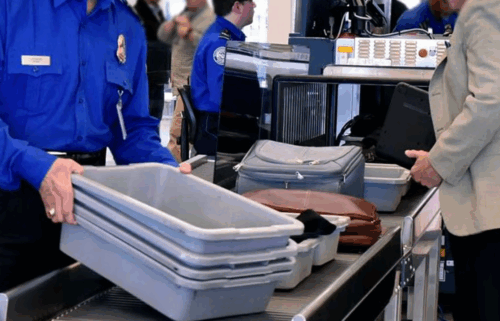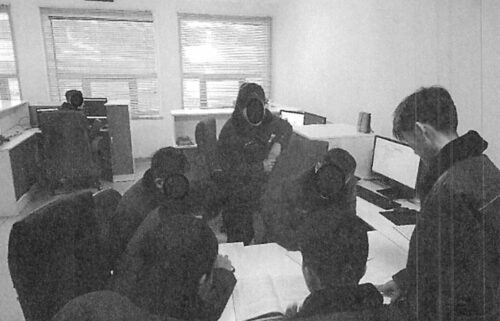What you need to know before markets open
Disney+ launches Tuesday in the United States, Canada and the Netherlands.
The streaming service represents Disney’s first charge into the “streaming wars,” which pit media giants like CNN’s parent, WarnerMedia, against tech firms such as Apple and pure streaming plays like Netflix. Each wants consumers’ time and money.
For Disney and its CEO Bob Iger, Disney+ represents a major shift of focus. Disney has made it to the top of the media world over the last century thanks to its kingdom of record-breaking blockbusters, theme parks, TV networks and Buzz Lightyear action figures.
Why would the most dominant media company in the world invest billions of dollars in order to create a new unit in its already lucrative business?
“I think Iger has seen dinner and a movie become Netflix and Uber Eats,” said Jeffrey Cole, director of USC Annenberg Center for the Digital Future. “Disney is fully committed to streaming because they think that streaming is going to be at the core of the whole company going forward.”
The challenge: Disney is late to the streaming game (Netflix has nearly 160 million subscribers) but it hopes to make up for lost time by offering a deep content vault at an irresistible price.
Access will cost $6.99 a month — half of what Netflix charges for its standard plan. A bundle with the company’s other streaming offerings, ESPN+ and an ad-supported Hulu, will cost $12.99 a month.
“Disney’s primary advantage is its extensive catalog of content,” Suzanne Scott, an assistant professor at the University of Texas’ Moody College of Communication, told CNN Business.
As my colleague Frank Pallotta writes in his story about the launch, Disney has proved skeptics wrong before.
“Disney’s Folly” was the name some in Hollywood gave “Snow White and the Seven Dwarfs” before it premiered in 1937. Critics argued that Walt Disney was risking his studio’s reputation with a risky film that no one would sit through.
WeWork looks for a savior
T-Mobile and Sprint are hoping to complete their merger soon.
But the man positioned to head that new company is in talks to lead another major undertaking: a rescue mission for WeWork.
T-Mobile CEO John Legere, who has been set to remain chief executive of the combined telecoms company, is one of a number of people in talks to take over the top job at WeWork parent We Co., a source familiar with the matter told CNN Business.
The struggling office sharing startup has been searching for a new leader to bring stability after a botched IPO led to the ouster of co-founder and former CEO Adam Neumann. The talks were first reported by the Wall Street Journal.
There is a SoftBank connection. The Japanese holding company owns majority takes in both Sprint and WeWork, having pumped billions of dollars into the startup as part of a recent rescue.
The case for a new leader: Legere is known as something of a turnaround artist. He has transformed T-Mobile from a struggling carrier with below average coverage to the fastest growing network in the United States.
There are some surface-level similarities between the Legere and Neumann. Both have a nontraditional leadership style. Legere is a Twitter fanatic, has sparred with President Donald Trump and other executives and is almost always seen rocking T-Mobile magenta. Legere and Neumann also share similar hairstyles.
But Legere could bring the leadership chops to WeWork that Neumann lacked, according to Tim Hubbard, a professor of management at University of Notre Dame’s Mendoza College of Business.
“Hiring John Legere would serve as a signal to the market that the company wants to increase its legitimacy without losing its core, radical nature,” Hubbard told CNN Business.
Return of the 737 Max?
Boeing believes it can get permission before the end of this year to fly the 737 Max again.
The plane has been grounded by aviation authorities around the world since March because of two fatal crashes that killed all 346 people aboard the flights. News that it could return this year sent Boeing shares up 4.5% on Monday.
Boeing has continued to build about 42 of the jets each month even, although it can’t deliver them to customers during the grounding. The deliveries are important to Boeing, because it collects most of the money from a sale when a plane is delivered to an airline.
The final word: Boeing previously said the process of working through the backlog of completed planes will take until 2021, since it can’t immediately deliver all the planes it built. That means years more of trouble.
Up next
Earnings reports from Tyson Foods and CBS are out before the opening bell. SmileDirectClub will report after the close.
Also today:
- The NFIB Small Business Optimism Index will be published.
Coming tomorrow: Fed Chairman Jerome Powell testifies before Congress; US inflation; Canada Goose, Luckin Coffee, Cisco earnings




